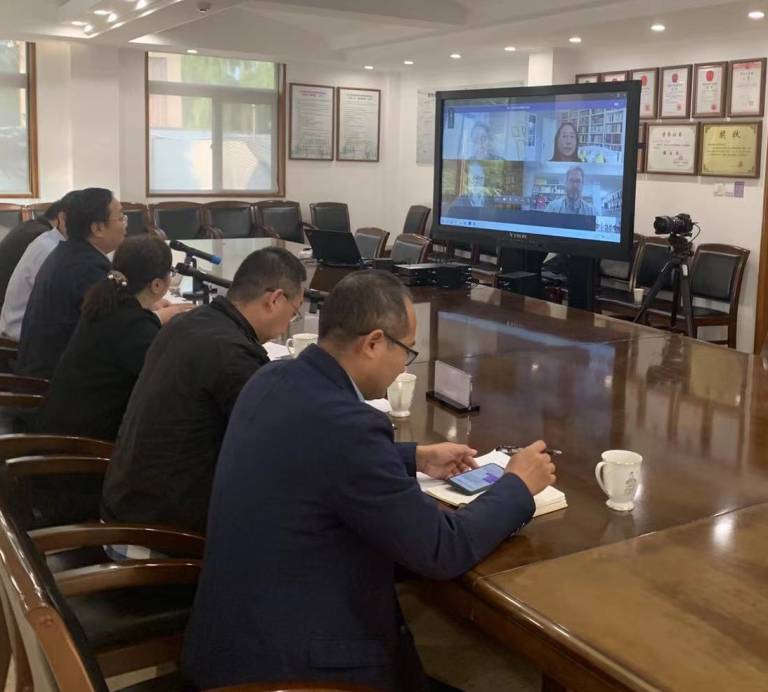Project update: brand new research agendas and a recent kick-off meeting
14 February 2023
We have been awarded additional funding from the UK Arts and Humanities Research Council (AHRC) for a fresh project dedicated to understanding Qin Imperial iron production.

The long-standing collaboration between UCL Institute of Archaeology and Emperor Qin Shihuang’s Mausoleum Site Museum entered an exciting new stage recently. Not only have we had our five-year status as a British Academy Research Project recently renewed, but we have also been awarded additional funding from the UK Arts and Humanities Research Council (AHRC) for a fresh project dedicated to understanding Qin Imperial iron production.
In our previous collaboration, we mainly focused on the large quantity of functional bronze weapons (Bevan et al. 2018; Li et al. 2011; 2012; 2014; Li 2020; Martinon-Torres et al. 2014; 2019) associated with the battle formation of the Terracotta Army, famously buried as part of provisions for the Qin First Emperor’s afterlife. We also focused on investigating artistic and technological features of the terracotta warriors themselves (Bevan et al. 2014; Li et al. 2016; Quinn et al. 2017; 2020). However, the significance of a small number of iron weapons found at the site could not be neglected. In contrast to the bronze weapons, hundreds of iron tools and implements have also been discovered within the mausoleum complex. And in particular, a newly excavated ancillary tomb M1 yielded iron swords and a suit of iron armour. It prompts us to consider some long-term questions about why the weapons for the Terracotta Army were made of bronze rather than iron, and how iron and steel emerged and developed in early imperial China in a wider context of an ‘Axial Age’ across Europe and Asia. These questions are aimed to be tackled in this Qin Imperial Iron project.
A kick-off meeting was organized online in October 2022 between UCL Institute of Archaeology and Emperor Qin Shihuang’s Mausoleum Site Museum. Following the meeting, both UCL and Museum colleagues discussed a detail plan and started working together online or on site to carry out database establishment, scanning, non-invasive, and invasive analysis. More news soon!
Xiuzhen Li, AHRC Principal Research Fellow at UCL Institute of Archaeology; Andrew Bevan, Professor at UCL Institute of Archaeology.
 Close
Close

